Many startups underestimate how important UI UX design for SaaS is, but it can be the reason users stay or leave.
Starting a SaaS business is tough. You spend months building a great product. You test it, fix bugs, and maybe even launch it. But then something happens (or doesn’t).
People don’t sign up. Or they do… but they don’t stick around.
You might wonder:
“Is my pricing off?”
“Should I add more features?”
Before you chase the wrong problem, ask this:
👉 Is my product easy to use?
If it’s not, even the best features won’t matter.
That’s where UI/UX design becomes a game-changer.
What Is UI/UX Design? (Without Fancy Terms)
Let’s break it down simply:
- UI (User Interface) is how your product looks. The buttons. The layout. The colors.
- UX (User Experience) is how it feels. Is it simple? Is it fast? Does it make sense?
Think of it like a car:
- UI is the steering wheel, the seats, and the dashboard.
- UX is how smooth the ride is, how easy it is to drive, and how fast you reach your destination.
Great products have both: they look good and feel good.
What Happens When UX Is Bad?
Bad UX is like putting your users in a maze with no map.
They sign up, they click around, and then they leave.
Here’s what poor design can cause:
1. People Don’t Understand What to Do
If users can’t figure out your product in the first few minutes, they’ll leave. Fast.
2. Low Conversions
If your signup or setup is confusing, trial users won’t become paying customers.
3. Too Many Support Tickets
Your team ends up answering the same “how do I…” questions over and over again.
4. You Look Unprofessional
Even if your product works well, a messy design makes it seem like it doesn’t.
5. Users Talk (and Not in a Good Way)
People share their bad experiences. And in SaaS, word spreads quickly.
✅ What Good UI UX Design for SaaS Feels Like
You don’t always notice good design, and that’s the point.
Good UI/UX is like a smooth road. You just drive.
Here’s what it looks like in real apps:
Clear Navigation
Users can find what they need fast. No guessing.
Example: In Slack, messages and settings are easy to find even for new users.
Simple Onboarding
Good onboarding makes people feel comfortable right away.
Example: Notion shows helpful tips as you go. It doesn’t overwhelm.
Clean Layout
Great products don’t throw everything at you. They guide you step-by-step.
Example: Stripe uses white space, bold headings, and clear buttons.
Fast and Mobile-Friendly
If your product is slow or broken on phones, people will quit. Fast.
How Bad UX Hurts Your SaaS Business
Let’s say 100 people sign up for a free trial of your product.
Here’s what might happen:
| Problem | Outcome |
|---|---|
| Clunky onboarding | 60+ users never finish setup |
| Too many steps to get value | 50+ users don’t convert |
| Confusing dashboard | High drop-off rate |
| Poor mobile UX | Users leave quickly |
| No feedback on success | Users feel lost or frustrated |
Now you’re wondering why growth is slow. But the problem isn’t marketing; it’s usability.
What Happens When UX Is Good
Let’s flip it.
With a better design, more users:
- Sign up
- Complete setup
- Understand the product
- Get value faster
- Come back and pay
That’s the power of good UX.
You don’t need more ads, you need a product that makes sense.
Real ROI of Better Design
Still thinking, “This sounds nice, but will it help my numbers?”
Yes. 100%.
Here’s what we’ve seen happen after simple UX updates:
| Metric | Before (Bad UX) | After (Better UX) |
|---|---|---|
| Onboarding completion | 35% | 70%+ |
| Trial-to-paid conversion | 10% | 20–30% |
| Churn (first 30 days) | 25% | 8–12% |
| Support ticket volume | High | 30–50% less |
Design isn’t a cost. It’s an investment that pays off every month.
Signs You Might Need a UX Overhaul
Ask yourself these:
- Are users confused about what to do next?
- Are people not finishing onboarding?
- Do you get the same support questions over and over?
- Are people leaving within the first few days?
- Does your app feel “clunky” even to you?
If yes to any of these, it’s time to look at your product design.
How to Improve UI UX Design for SaaS (Even on a Budget)
You don’t need to hire a big team. Start small. Be smart.
1. Watch Real Users
Use tools like Hotjar or FullStory to see where people get stuck.
2. Ask for Feedback
Simple forms or user interviews can give you gold. Ask:
- “What was hard to figure out?”
- “What didn’t make sense?”
- “What would you change?”
3. Focus on One Flow at a Time
Pick your most important action, like setting up a project or sending an invite. Make that flow amazing first.
4. Keep it Simple
Don’t overwhelm people. Show less. Let them explore slowly.
5. Hire a Product Design Partner
A freelance UX designer can help you clean things up fast without long contracts.
Case Example (True Story)
We worked with a SaaS team offering a dashboard tool for small businesses. Smart team. Strong tech.
But users kept dropping out during setup.
We simplified their onboarding:
- Broke the steps into smaller parts
- Added progress bars and success messages
- Removed 3 unnecessary clicks
The result?
- 2x more people finished onboarding
- Trial conversions went up by 60%
- Fewer people left support tickets
No major rebuild. Just better flow.
Final Thoughts
Let’s be real: if your product is hard to use, people won’t use it. It doesn’t matter how smart the code is.
People buy software that:
- Solves a problem
- Is easy to start
- Feels great to use
That’s what good UI/UX design does.
If you’re running a startup, don’t wait. Start improving the experience now before you scale the wrong version.
Need Help With Your SaaS UX?
We’re Bilzimo: a team that designs and develops smart, clean, user-first interfaces for SaaS and B2B brands.
We keep things simple, human, and conversion-focused.
📞 Let’s talk: book a free 20-minute call
Let’s make your product feel as good as it works.

